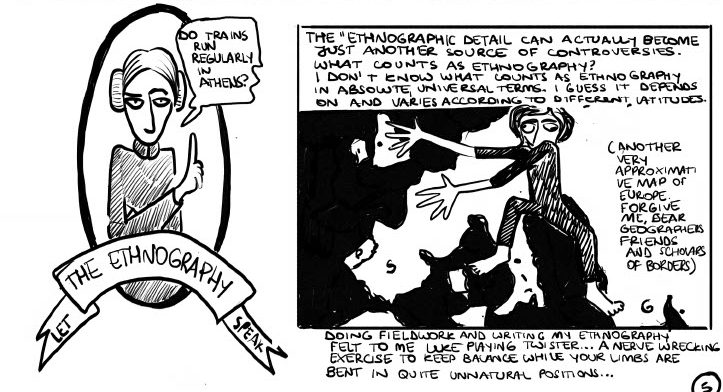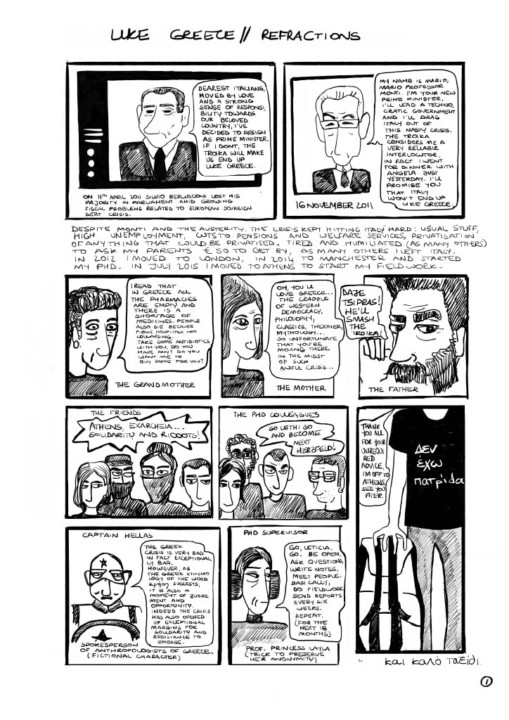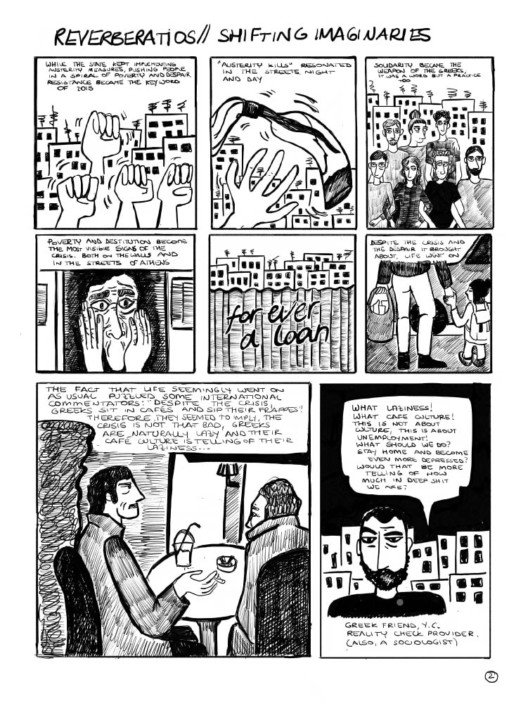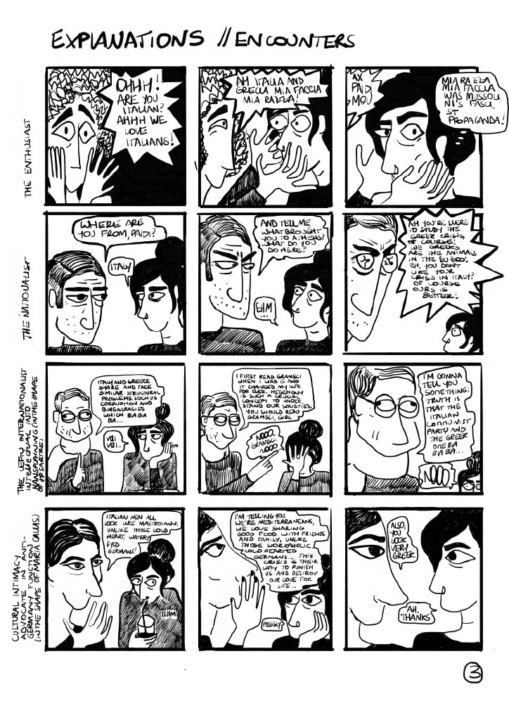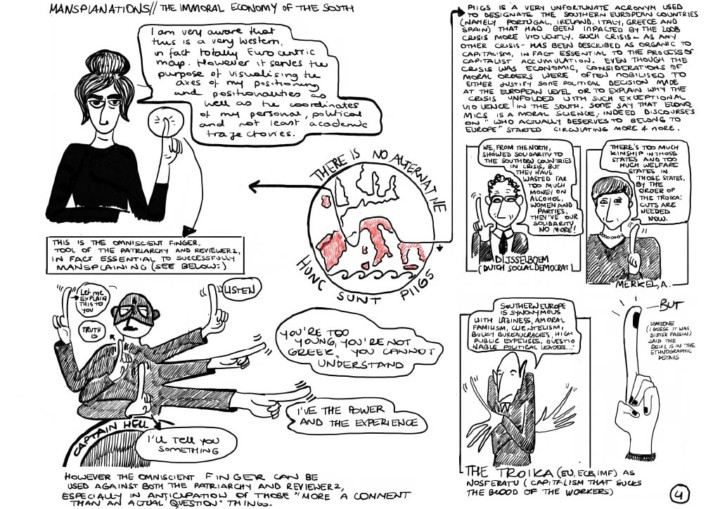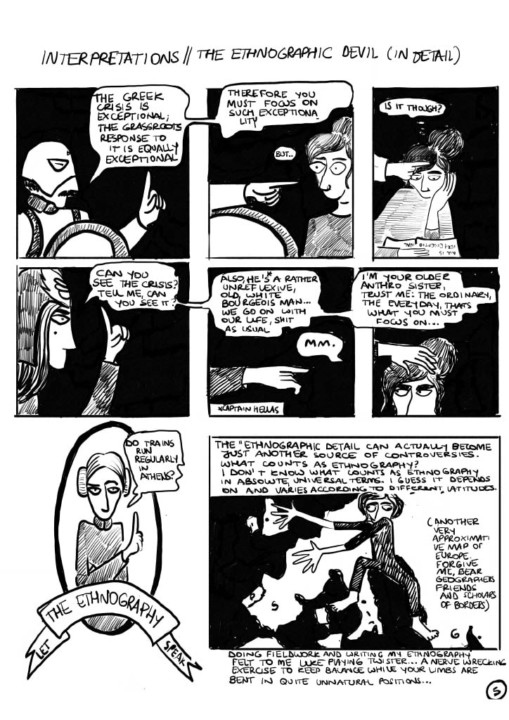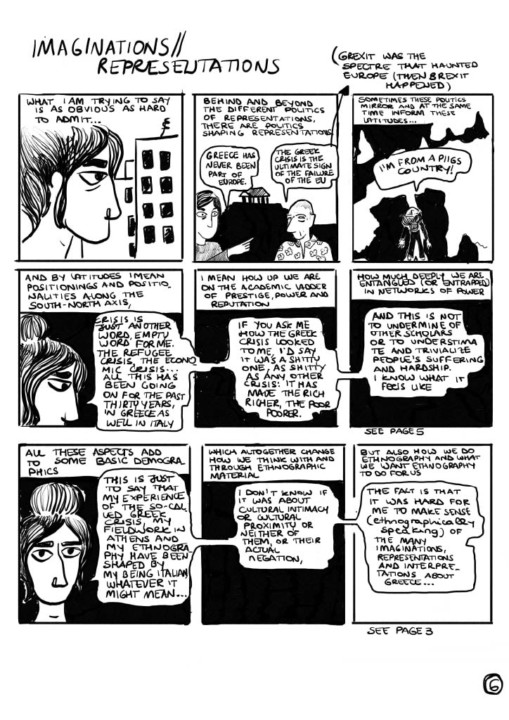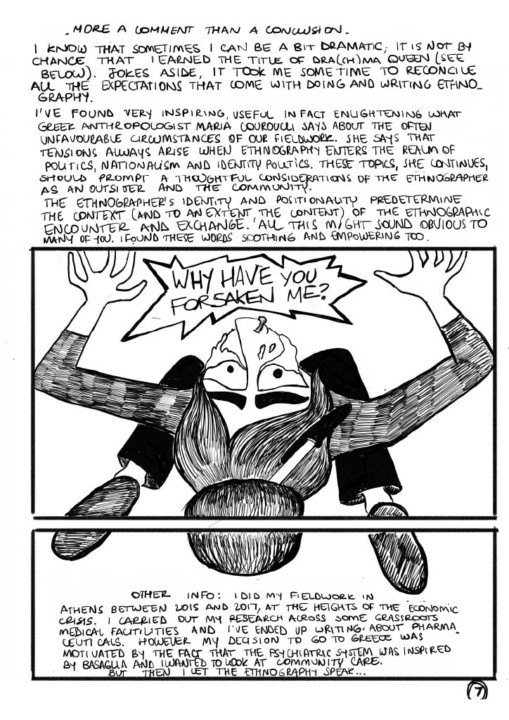This post is part of our Encountering Precarities series. The thematic thread engages with the multiple and asymmetrical forms of precarisation and vulnerabilisation involving both ethnographers and their interlocutors in and beyond the field.
Whose crisis is this crisis? is a short ethno-graphic reflection on how conflicting, shifting imaginaries of the Greek crisis have shaped the ethnography fieldwork I carried out in Athens between 2015 and 2017. Throughout the seven pages comprising my contribution, I tease out how anthropological theories informing my research questions eventually stood at odds with the actual lived experience of my fieldwork. Following Couroucli (2007), I reckon with the reality of fieldwork where the autobiographical and the ethnographic overlap, often creating uncanny epistemological counter-circuits. Yet, at the same, they can open up unexpected margins for solidarity which often thrives on a shared sense of heightened precarity and vulnerability.
Benefitting from the affordances that the so-called graphic ethnography turn in anthropology allows in terms of self-reflexivity (Bonanno 2019), auto-ethnographic interventions (Theodossopolos 2020) and novel modes of representation sensitive to the subjective dimensions of the ethnographic encounters, my contribution wants to push further such affordances and activate the potential that the graphic medium retains to move critiques that at times are theoretical and political too. In this sense, my work aligns with the broader tradition of political cartooning (Theodossopoulos 2021) and, more specifically, with the Italian comic tradition where pop-culture elements and figures, characters and stereotypes are saturated in order to make them explode in the attempt to unsettle common-sensical, ordinary perceptions of reality (academic, ethnographic or else).
The anthropological debate on the so-called Greek crisis, its supposed exceptionality and the social, collective and grassroots responses it triggered has resulted in a bourgeoning wealth of academic articles that, although not explicitly cited, have informed the pages I have drawn.
Bibliography
Bonanno Letizia, 2019. I Swear I Hated therefore I Drew it. Entanglements. Experiments in multimodal ethnography 2(2): 39-55.
Couroucli Maria, 2007. Identity, Nationalism and Anthropologists. In: T. Fabre and P. Sant-Cassia, eds. Between Europe and the Mediterranean. London: Palgrave Macmillian, 73-87.
Theodossopoulos Dimitrios, 2020. Solidarity Dilemmas in Times of Austerity: Auto-Ethnographic Interventions. Cultural Anthropology 35(1): 134-166.
Theodossopoulos Dimitrios, 2022. Collaborative Experiments in Graphic Ethnography: Emulating Political Cartooning. Trajectoria Anthropology, Museums and Art, Vol 3.

